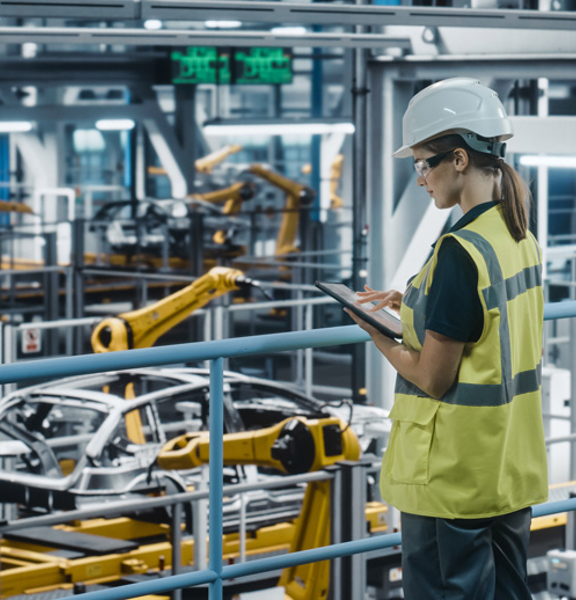Become a member
Take advantage of exclusive member benefits, world class events, networking and specialist support








 Become a member
Become a member 

19 October 2023
Today, many palletizing applications are still carried out by manual labour. Many of these companies are experiencing difficulty finding and retaining labour due to repetitive palletizing tasks which lead to strains, injuries, mistakes and inefficiencies.
However, by introducing robotic palletizing solutions, it ensures you get the flexibility, productivity and reliability you need to meet ever shorter product life-cycles, new packaging designs, multiple pack sizes & product variants and batch manufacturing.
Many logistics and warehouse companies are adopting robotic palletizing solutions, improving their time to market and cost effectiveness. Palletizing has the potential to free up employees for higher value-added tasks whilst dealing with labour shortages. By installing the industry 4.0 robotic palletizer, it not only lowers cost of handling, reducing handling tasks and errors, but also lowers the risk of injury to your employees.
There are numerous models on the market today that can assist with your palletizing solution. Choosing the right one for your specific application is vital. The wrong choice could result in inability to use the product line, resulting in loss of productivity and safety hazards.
Factors which can impact choice:
Applied Integration can develop 3D process simulations prior to implementation of the final system to avoid risk and loss of production.
Collaborative Robots:
6-Axis Industrial Robots
Gantry Robots
A risk assessment should be completed during the cell implementation to make sure the environment around the cobot and the cobot itself is safe. A machine should only be put into production once the risks have been identified and reduced to an acceptable level.
For a robotic palletizing cell the following areas need to be taken into account:
Contact our palletizing specialist, Peter Moore, who will be able to advise and provide you with the best industry knowledge to help streamline your end-of-line packaging with a collaborative robotic palletizer.
Applied Integration is a leading systems integrator, specialising in delivering the latest industry technologies with a focus on Industry 4.0, Digitalisation, Internet of Things (IoT), Analytics, Big data / Cloud Technologies, Safety Critical Systems (SIL1, SIL2, SIL3) and Robotics and Collaborative Robots (Cobots). Founded in 2005, AI has a dynamic, 50+ strong engineering team with many years combined experience.